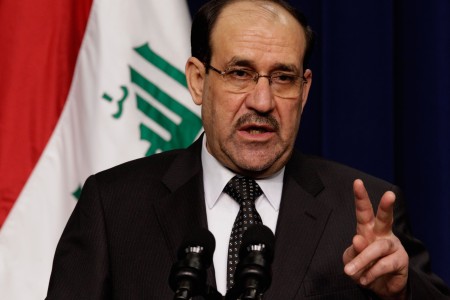UPDATE 1530 GMT: The European Union has issued a statement supporting the supply of arms to the Iraqi Kurdish military.
The EU welcomed “the decision by individual Member States”, such as Britain and France, “to respond positively to the call by the Kurdish regional authorities to provide urgently military material”.
The EU also said it would assess how to prevent the Islamic State benefitting from sale of oil from captured field, condemning those who funded the jihadists.
The Czech Republic said it would join Britain and France in supplying arms by the end of August, while the German Foreign Minister is visiting Iraq this weekend to discuss the request.
UPDATE 1420 GMT: Video of Iraqi Kurdish peshmerga thanking units of the Syrian Kurdish YPG for their help in checking the advance of the Islamic State:
Before the recent offensive by the jihadists against Kurdish territory, the YPG had stayed out of fighting at the request of Iraqi Kurdistan leaders. In the past month, however, hundreds of Syrian fighters have entered northern Iraq.
UPDATE 1400 GMT: The US has told leaders in Anbar Province in western Iraq that a new Government must be in place in Baghdad before there are American airstrikes against the Islamic State in the area.
The chairman of Anbar’s provincial council, Sabah Karhout, said a delegation from the province was given the line by the US Ambassador to Iraq, Robert Beecroft, after Karhout called for operations against the jihadists.
Beecroft said the new federal government was needed because US airstrikes required an agreement between the two countries.
The Islamic State, alongside Sunni insurgents, have claimed control of parts of Anbar Province — including Fallujah and parts of the capital Ramadi — since the start of 2014.
Meanwhile, Taha Mohammed Al-Hamdoon, a spokesman for a coalition of Sunni representatives from Anbar and other provinces, says Prime Minister-designate Abadi must stop attacks by Shia militia and Iraqi aircraft before reconciliation talks:
It is not possible for any negotiations to be held under barrel bombs and indiscriminate bombing. Let the bombing stop and withdraw and curtail the (Shi’ite) militias until there is a solution for the wise men in these areas.
Nuri al-Maliki has given up his battle to remain Iraq’s Prime Minister, a post he held since 2006.
In a televised address, he endorsed Haider al-Abadi — nominated earlier this week by the National Alliance bloc of Shia parties and endorsed by a series of Iraqi groups and foreign powers — as his successor to preserve Iraq’s “unity”.
“I announce before you today, to ease the movement of the political process and the formation of the new government, the withdrawal of my candidacy in favour of brother Dr Haider al-Abadi,” Maliki said.
The outgoing Prime Minister had said that he would file a lawsuit to prevent al-Abadi’s succession.
The US immediately welcomed the announcement. Its ambassador to the UN, Susan Rice, said:
Today, Iraqis took another major step forward in uniting their country.
We commend Prime Minister Maliki for his decision to support Prime Minister-designate Haider al-Abadi in his efforts to form a new government in line with the Iraqi constitution.
These are encouraging developments that we hope can set Iraq on a new path and unite its people against the threat presented by the Islamic State of Iraq and the Levant.
Maliki had been under pressure to step down since an insurgent offensive, led by the jihadist Islamic State, took Iraq’s second city Mosul and Tikrit and advanced on Baghdad in June. Last month he lost the support of the country’s top Shia cleric, Ayatollah Ali Sistani, and last week his most prominent foreign backer, Iran, stepped back from him.

